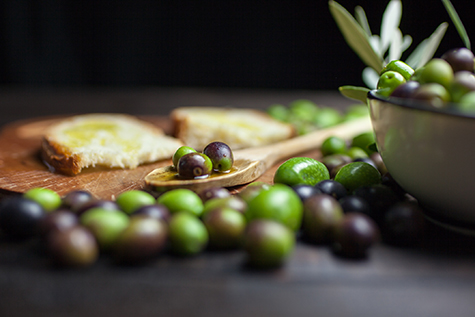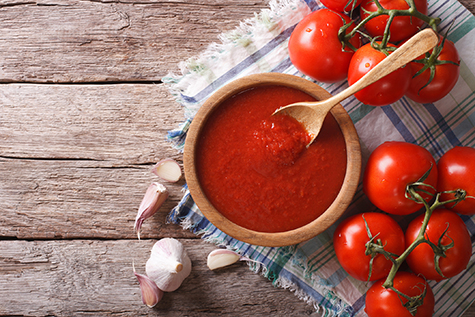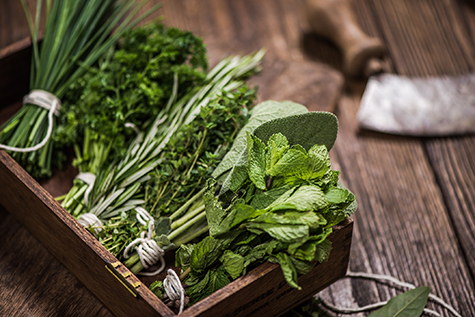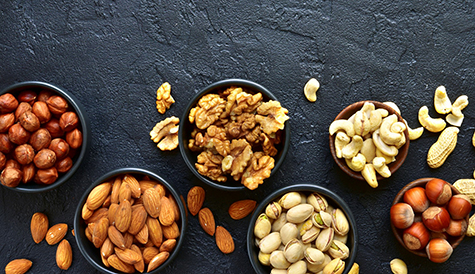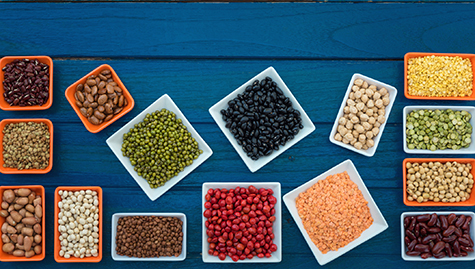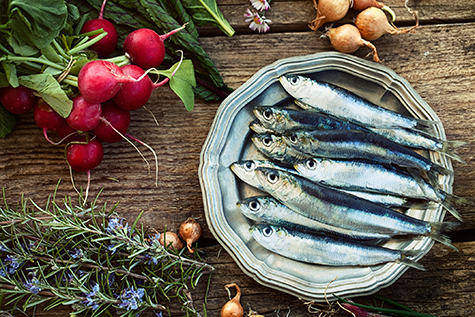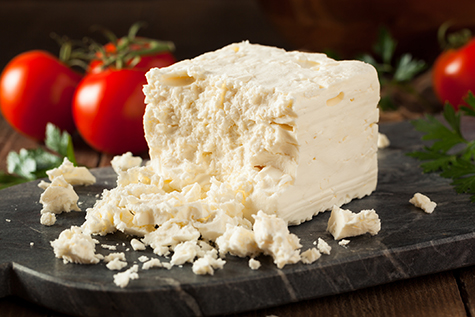Mediterranean Superfoods Are Health Heroes

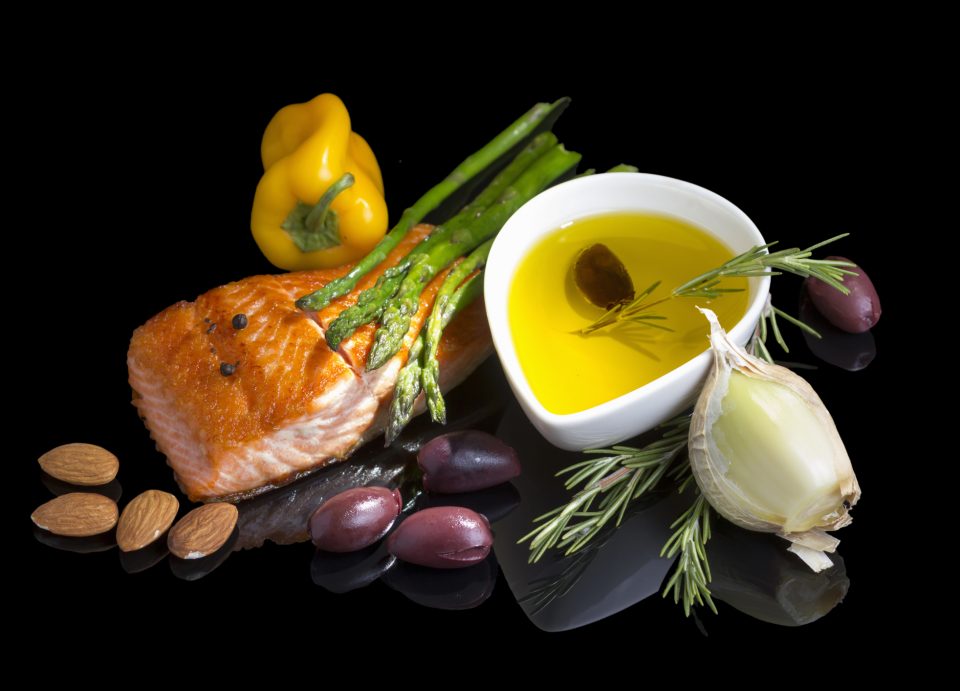
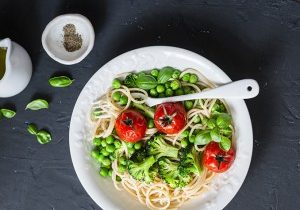 You have probably heard of the Mediterranean Diet. Besides conjuring visions of sipping chilled prosecco overlooking a sparkling sea, this way of cooking and eating is a heavily plant-based diet consisting of fruits, vegetables, whole grains, herbs, fish, lean meats (in moderation) and monounsaturated oils, such as olive oil.
You have probably heard of the Mediterranean Diet. Besides conjuring visions of sipping chilled prosecco overlooking a sparkling sea, this way of cooking and eating is a heavily plant-based diet consisting of fruits, vegetables, whole grains, herbs, fish, lean meats (in moderation) and monounsaturated oils, such as olive oil.
It’s a true farm-to-table diet that relies on locally produced/caught/raised foods. In a number of studies, people who live around the Mediterranean in Southern Spain, Portugal, France, Italy, and Greece, as well as countries such as Croatia, Israel and Morocco, and live a mostly agrarian life tend to have lower incidences of heart disease, stroke and cancer.
As Dr. Andrew Weil says in his book, Eating Well for Optimum Health, “The traditional Mediterranean diet exists in a particular cultural context, in which people get more physical activity than most Americans and enjoy strong social and family bonds around meals. Eating together and taking pleasure in food are central to these healthy societies.”
The good news is that you don’t have to live on a remote Greek island to enjoy the benefits of a Mediterranean diet. In fact, it’s one of the easiest diets to follow, because the essential ingredients are delicious and readily available to most Americans virtually all year long.
The following is a list of superfoods that are key elements of the Mediterranean diet. They align with the FoodTrients ideal of promoting health and longevity with delicious eating.
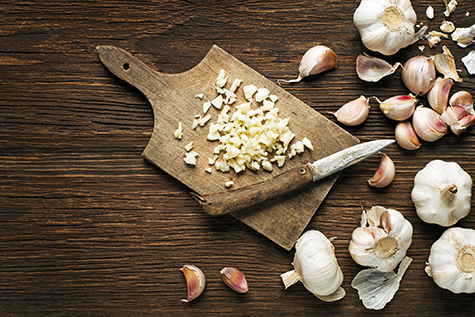 Garlic
Garlic
It helps cells fight against oxidative damage, and is a good source of vitamin B6, which helps regulate hormonal activity and boosts the immune system. Garlic enhances chicken, fish, vegetable, whole grain pilafs and spreads like my Garlic-Rosemary White Bean Spread.
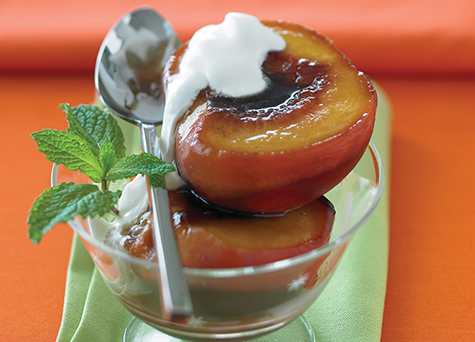 Fruits
Fruits
Citrus fruits in particular. Spain and Italy are among the top citrus producing countries in the world, and just about every garden has orange, lemon, grapefruit or tangerine trees. Citrus fruits are rich in vitamin C, which helps protect cells from oxidation and fight infection. The Mediterranean climate is also well suited to the growing of other popular and versatile fruits such as apples (high in fiber), apricots (good source of carotene), avocados (full of healthy fats), cherries, dates, figs, grapes, melons, nectarines, peaches, pomegranates (full of anti-oxidants, potassium and vitamin C) and strawberries. At the conclusion of most Mediterranean meals, dessert can be as simple as chilled fruit. Or, for something a little more ambitious, try this recipe for Balsamic Peaches with Crème Fraiche.
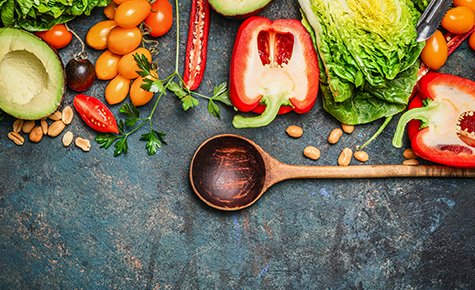 Vegetables
Vegetables
Mediterranean markets are always full of flavorful local vegetables. The traditional Mediterranean diet includes some familiar vegetables and others you may want to try for the first time: artichokes, arugula (try it in salads or sautéed and in pasta), beets, broccoli, Brussels sprouts, cabbage (the last three all highly nutritious cruciferous vegetables), carrots (carotene!), chicory, cucumbers, dandelion greens, eggplant, fennel, kale (try my Lemon Tahini Kale Chip recipe), leeks, mache (thin, dark green leaves with a nut-like flavor), mushrooms, mustard greens, onions (red, sweet, white), peppers, purslane (a succulent that’s a good source of vitamins and minerals including calcium, copper and iron and higher in omega-3 fatty acids than most other plants), radishes, rutabaga (a cabbage family root vegetable), scallions, shallots, spinach, and zucchini and more!
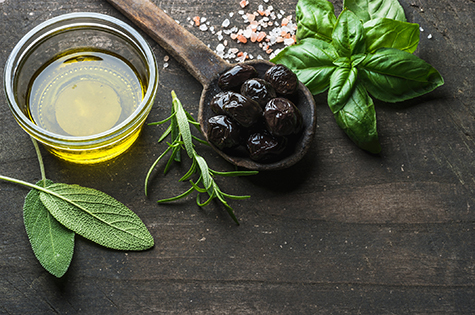 Olive oil
Olive oil
Olive oil is one of the best fats for you and a key element of the Mediterranean diet. It contains healthful monounsaturated fats that help to regulate cholesterol and stave off heart disease. Use cold-pressed extra virgin olive oil to drizzle over salads, vegetable dishes and soups. Heat diminishes the healthy properties of olive oil, so only use it for low temperature cooking.
Olives
One of the first foods processed through fermentation and/or curing thousands of years ago, because olives are very bitter right off the tree. Be sure the olives you buy are fermented and not just pickled. The advantage of fermenting olives is that they contain probiotics and healthy bacteria that are good for your digestive system. This recipe for Olive & Herb Tapenade is an easy classic.
Olives are so beneficial that there is an effort to have them classified as a ‘functional food,’ which is defined by the FDA as, “A modified food that claims to improve health or well-being by providing benefit beyond that of the traditional nutrients it contains.”
Olives also possess anti-inflammatory qualities and antioxidant-rich phytonutrients. These help protect against the damaging effects of stress and cellular oxidation is associated with the development of cancer.
Tomatoes
Provide 38 percent of the RDA of vitamin C, which boosts immunity and improves the absorption of iron from foods. Tomatoes are low in calories, high in fiber and also contain generous amounts of vitamin K, potassium, folate and lycopene, which give them their red color and is a powerful antioxidant. Cooked tomatoes (like those in cans) are particularly good for reducing the risk of prostate cancer in men. Handy hint: Look for canned tomato products that say, ‘organic’ or ‘vine ripened.’ That means they are packed fresh each year and minimally processed compared to the big national brands. And, of course, there is their amazing taste, especially when the tomatoes are fresh in season and drizzled with extra virgin olive oil. This recipe for Mama’s Chicken Sauté may be from my Mom’s kitchen in the Philippines, but it’s mostly Mediterranean ingredients.
Herbs
The beauty of herbs and spices in Mediterranean cooking is that they add flavor to foods, reducing the need to add salt or fat. They are also rich in various antioxidants. Oregano, for example, when compared with other common herbs in a USDA study, had 3 to 20 time’s higher antioxidant activity than the other herbs. In addition, it has anti-inflammatory and antibacterial properties. Herb blends and spices contribute to the unique character of the various Mediterranean cuisines. Sprinkle oregano or sumac on a salad for a refreshing flavor.
Nuts
A handful of nuts such as almonds, hazelnuts, pistachios and especially walnuts (you’ll love this recipe for Brussels sprouts with Pomegranate & Walnuts) is heart healthy. Nuts contain many of the nutrients that are good for general and cardiovascular health—protein, fiber, unsaturated fats, omega-3 fatty acids and plant sterols, which help control cholesterol and may protect against prostate cancer. Just a few nuts can make salads, snacks and spreads especially delicious.
Beans and lentils
Legumes form the base of a Mediterranean diet and include chickpeas, cannellini, fava beans, kidney beans, lima beans and peas, etc. They are high fiber foods that help with digestion and are also rich in amino acids for cell repair. Beans are good sources of minerals such as iron, calcium, phosphor, and magnesium. Legumes of all types provide depth and texture to salads, stews and soups, like my Lemon Spring Herb Bean Soup.
Seafood
Oily fish such as sardines and anchovies are classics in Mediterranean cuisine, but really any seafood is central to the cuisine of a region with thousands of miles of coasts and hundreds of islands. Oily fish are especially high in omega-3 fatty acids, vitamins B-12 and D, but all fish and shellfish are also high in protein and valuable minerals. Typical Mediterranean Seafoods include abalone, clams, cockles, crab, eel, flounder, lobster, mackerel, mussels, octopus, oysters, salmon (my recipe for Chimichurri Baked Salmon may be Argentinean, but many of their families emigrated from Italy), sea bass, shrimp, squid, tilapia, tuna, whelk, yellowtail, mostly prepared simply—grilled or sautéed in olive oil, lemon juice and garlic.
Feta cheese and yogurt
Mediterranean cuisine is not a dairy-heavy style of cooking, but there are a couple of products that pop up repeatedly. Greek yogurt is made from cow’s milk that has been strained repeatedly, making it especially rich and creamy. Plain Greek yogurt contains twice the protein and less sugar than regular yogurts. In addition, it’s valuable for its generous amount of calcium, essential for bone growth and repair. Greek yogurt with crumbled walnuts and drizzled with honey is an easy, delicious power breakfast.
Feta cheese is made from sheep’s milk or sometimes combined with goat milk, which is easier to digest than milk from cows. It’s also less allergenic and inflammatory than cheeses made from cow’s milk, making it a better choice for those with milk sensitivities. Feta cheese is high in calcium, vitamins B-12 and D as well as phosphorous. TIP: Avoid pasteurized feta and purchase raw feta. Pasteurization kills the good bacteria (probiotics) that help keep immunity and the digestive tract in balance. Feta brings an added dimension when crumbled into salads, soups, vegetables and pasta. For a satisfying Mediterranean summer meal, try this recipe for Herbed Lamb Meatballs & Orzo Salad.
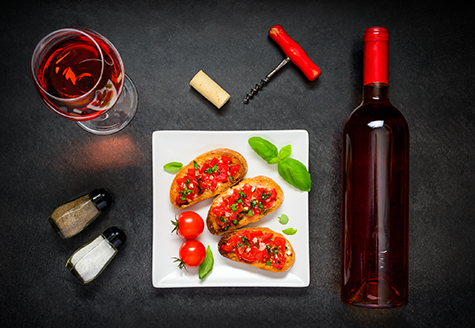 Wine
Wine
No proper Mediterranean meal is without wine. A modest amount of wine daily (1-2 5oz. glasses) provides a trove of healthful properties. It’s full of antioxidants, can boost the immune system, can increase bone density due to high levels of silicon in red wine, lowers cholesterol and promotes cardiovascular health. And, according to studies at the Harvard School of Medicine, the resveratrol in wine activates a protein that acts as an anti-aging agent.
